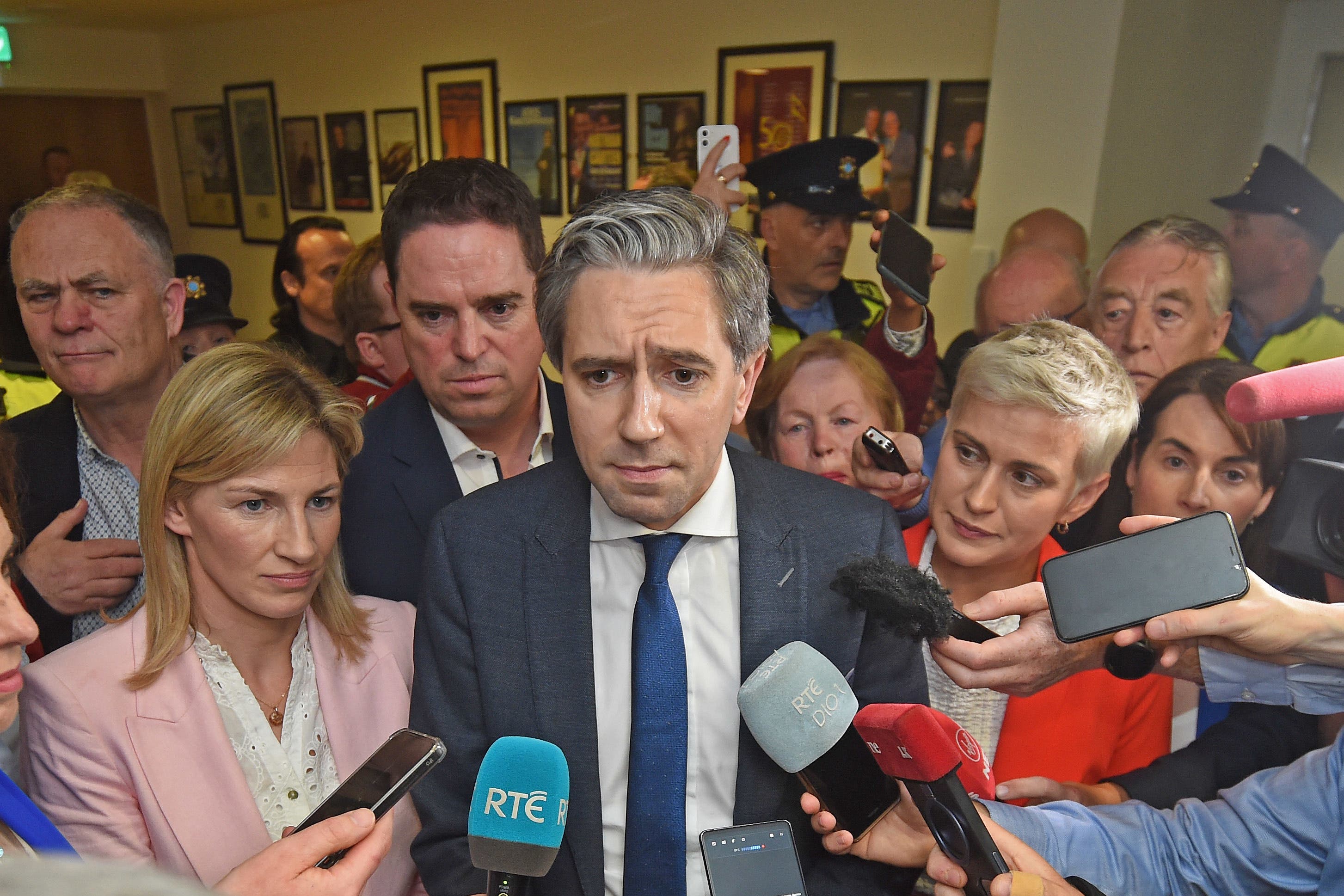Irish premier defends electoral system as ‘valued and transparent’
‘We won’t be told by anyone else how to do our elections,’ Taoiseach Simon Harris said.

Your support helps us to tell the story
From reproductive rights to climate change to Big Tech, The Independent is on the ground when the story is developing. Whether it's investigating the financials of Elon Musk's pro-Trump PAC or producing our latest documentary, 'The A Word', which shines a light on the American women fighting for reproductive rights, we know how important it is to parse out the facts from the messaging.
At such a critical moment in US history, we need reporters on the ground. Your donation allows us to keep sending journalists to speak to both sides of the story.
The Independent is trusted by Americans across the entire political spectrum. And unlike many other quality news outlets, we choose not to lock Americans out of our reporting and analysis with paywalls. We believe quality journalism should be available to everyone, paid for by those who can afford it.
Your support makes all the difference.Irish premier Simon Harris has defended Ireland’s electoral system as transparent and valued, as marathon counting in the country’s EU elections came to a close.
It took six days of counting for Ireland to fill all 14 seats across its three European Parliament constituencies.
Ireland’s electoral system of proportional representation allows voters to rank every candidate in their area in order of preference.
The process means ballot papers are sorted and counted multiple times by hand.
We won't be told by anyone else how to do our elections
Candidates with the fewest votes are eliminated and their votes are then transferred to the remaining candidates. Someone is deemed elected when they reach the quota or when they are the final candidates remaining.
Speaking from Castlebar in Co Mayo overnight, Taoiseach and Fine Gael leader Simon Harris said the system does take time, but said Ireland “values” the transparency it offers.
“I’m a very proud member of the European Union, a very proud citizen of Europe. I love the European Union, but we won’t be told by anyone else how to do our elections,” he said.
“Here in this country, we value our electoral system, PRSTV, and we value the peann luaidhe (the Irish word for pencil) and the ballot paper.
“And you know what, it does take a little bit longer.
“I’m sure there’s times where lots of people here, including the count stuff, and including the journalists, wish it didn’t take quite so long – and definitely the candidates – I can fully understand that.
“But every single vote in Ireland can be seen so transparently moving from table to table, count to count. There is a lot to be said for that.”
I do think there is an issue in terms of the length of a ballot, just in terms of actually layout and design, but that's not a matter for me
He admitted there may be an issue with the length of the ballot papers.
There were 27 candidates in Midlands-North-West, resulting in a 73cm-long ballot paper.
There were 23 candidates in the Ireland South constituency, which the returning officer said had proved tricky for count staff.
Ireland’s deputy premier and Fianna Fail leader Micheal Martin also said the length of ballot papers may have resulted in people not giving preferences to as many candidates as in previous years.
“I do think there is an issue in terms of the length of a ballot, just in terms of actually layout and design, but that’s not a matter for me,” Mr Harris said.
“We have an independent Electoral Commission here in Ireland now and it’s a matter for them to consider but I know certainly when I was voting in my own polling station, even the ballot paper, the length of it, it wasn’t even able to stay on the table.
Referring to Fine Gael candidate Maria Walsh, who was re-elected as an MEP in Midlands-North-West overnight, he added: “Now, ‘Walsh’ is pretty far down the ballot list, they still found her.”